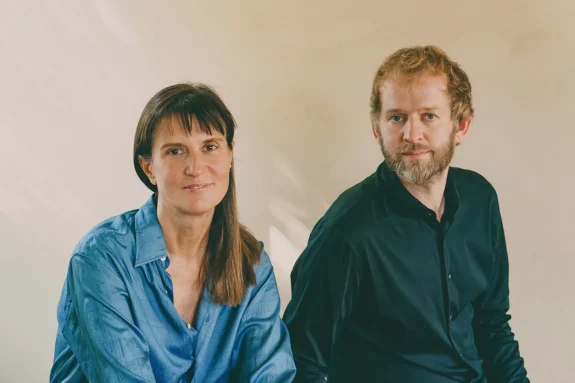
 United Kingdom Music at Paxton – Summer Festival of Chamber Music 2024 [1] – Beethoven, Schubert: Viktoria Mullova (violin), Alasdair Beatson (piano). Picture Gallery, Paxton House, Scottish Borders, 19.7.2024. (MC)
United Kingdom Music at Paxton – Summer Festival of Chamber Music 2024 [1] – Beethoven, Schubert: Viktoria Mullova (violin), Alasdair Beatson (piano). Picture Gallery, Paxton House, Scottish Borders, 19.7.2024. (MC)

Beethoven – Violin Sonata in A major, Op.12, No.2; Violin Sonata in G major, Op.96
Schubert – Rondo in B minor, D895
In the splendour of the Picture Gallery of Paxton House, the recital duo of Viktoria Mullova (violin) and Alasdair Beatson (piano) selected a mature and robust programme of three core works from two great Austro-German masters Schubert and Beethoven.
Viktoria Mullova is a world-renowned solo violinist that I both reported on and interviewed in 2013 during a concert of contemporary jazz and world music at the Residenzschloss, Dresden. The next year at Bridgewater Hall, Manchester, I reported from her performance of the Shostakovich First Violin Concerto with the Hallé under Sir Mark Elder. In recent times Mullova’s choice of repertoire has become increasingly diverse and only recently she returned after touring with her son, the jazz bassist Misha Mullov-Abbado. This Music at Paxton festival had been my first opportunity to attend one of Mullova’s chamber music recitals. I just knew that Mullova would be especially suited, playing in the chamber music tradition that she would have known from her years of study in Moscow.
Accompanying Mullova was Perthshire born pianist Alasdair Beatson a noted soloist and chamber musician. The Scot frequently plays historical keyboard instruments principally the fortepiano. Beatson trained at Aberdeen, the Royal College of Music, London and at Indiana University. In addition to touring Beatson teaches at the Royal Birmingham Conservatoire and the Chamber Studio, London.
Together Mullova and Beatson are recording the complete Beethoven violin sonatas using period instruments. It was no surprise that the duo decided that Beethoven violin sonatas would both open and close their Paxton programme. Beatson didn’t bring in a fortepiano he opted to play the Paxton Steinway piano.
Renowned as a pianist Beethoven had also studied the violin in some depth and wrote ten violin sonatas all between 1797 and 1812. The best known are those with descriptive names, namely the ‘Spring’ Sonata, Op.24 in F major (1800) and the renowned ‘Kreutzer’ Sonata, Op.47 (1802). Mullova and Beatson didn’t choose to play those with titles, instead they selected an early violin sonata and the final sonata written some twelve years later.
Opening the concert the duo played Beethoven’s Violin Sonata No.2 in A major, part of his Op.12 set of the first three violin sonatas (1797/98). Initially in the first movement Allegro vivace from my position in the hall Beatson’s piano sound was swamping the violin, thankfully that was quickly resolved. Throughout, the interplay between Mullova’s violin and Beatson’s piano, although producing hugely different sounds, was a joy and really held my attention. It was in the Andante that the glorious, sweet tone of Mullova’s violin became very apparent. I know Mullova can move easily between a violin with a modern set-up and one with gut strings. Here Mullova was playing her violin with gut strings. I am unsure what type of bow she was using, however as an experienced artist she would know what sounds best and it did, it sounded simply stunning. Marked Allegro in Rondo form, the closing movement that has been compared to a Scherzo, was given a performance of disarming exuberance. Beethoven’s proud and confident writing throughout this A major sonata was conveyed by Mullova and Beatson with a persuasive blend of charm and spirit.
In between the two Beethoven sonatas Mullova and Beatson chose to play Schubert’s Rondo in B minor, D895 from 1826. Although Schubert was a noted pianist as a young man, he had also studied the violin. He wrote the Rondo for a young Bohemian virtuoso Josef Slavík and it was published as the ‘Rondeau brillant’. This was uplifting and engaging playing from Mullova and Beatson. The duo clearly relished the challenges of the irresistible dance rhythms and bold harmonies of the violin showpiece.
To conclude their recital Mullova and Beatson opted for Beethoven’s Violin Sonata No.10 in G major, Op.96. Completed in 1812 this was the final violin sonata that Beethoven wrote. Its premiere was given by French violinist Pierre Rode and the piano part played by Archduke Rudolf, a Beethoven pupil. Here our talented duo highlighted the exuberant character in this G major score producing a panoply of joy and delightful music. Opening the work was the Allegro movement presented with such calm and reflection together with some brief and contrasting fiery writing. A soulful, hymn-like mood imbued the Adagio as the players created a remarkable intensity, and the Scherzo movement was buoyant yet well controlled. Marked Poco allegretto the finale is an exquisite set of variations on a simple yet attractive theme all leading to an extremely successful conclusion. Mullova and Beatson gave a generous encore playing the second movement from another Beethoven masterpiece the celebrated ‘Spring’ Sonata.
This was a recital of great rewards, likely the most exceptional I have reported on in recent years.
Michael Cookson
